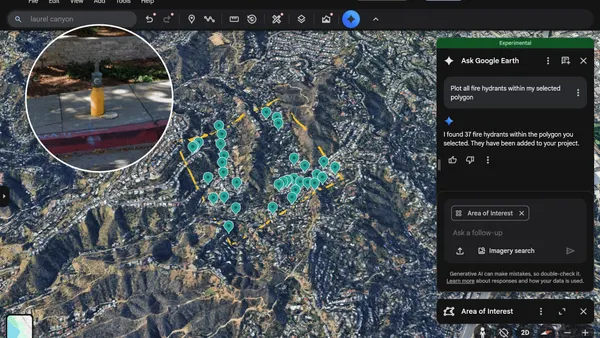Dive Brief:
- The developers of Ruckit logistics software are hoping they can bring some transparency and increased efficiency to the heavy construction freight market with their new telematics-aided, transportation management system, FreightWave reported.
- Ruckit improves communication between all the various parties involved in hauling and deliveries with a single, collaborative platform. Material aggregators, for instance, can manage delivery schedules and track payments using Ruckit, but contractors and other customers also can verify loads and invoice amounts using the system, eliminating the need for the usual paper ticket receipts.
- Transportation of dirt, rock, asphalt, concrete and other heavy construction materials can make up to 20% of the cost of a construction project, and Ruckit’s owners are looking to lower that percentage through the efficiencies of their platform. The short-haul trucking industry, in which heavy construction material haulers operate — with several deliveries a day — especially can benefit from the operational optimizations Ruckit can provide, the company’s owners told FreightWave.
Dive Insight:
Another recent announcement in the trucking management software space is that logistics company Trux soon will launch its “dump truck on demand” platform in Los Angeles. The cloud-based, online platform features automated dispatching and ticketing; driver tracking in real time; invoicing and payment services; as well as cost and performance data. The system allows customers — typically contractors or material providers — to more easily find and request a dump truck.
Telematics is the technology that allows remote monitoring of construction vehicles, letting fleet managers track everything from location to driver behaviors. According to the Association of Equipment Manufacturers, telematics has been embraced wholeheartedly by the construction industry as a way to increase efficiency, productivity and security by providing information that can reduce vehicle downtime, equipment misuse and theft.
Research firm Berg Insight predicted in a recent report that the construction equipment industry's installed base of original equipment manufacturer (OEM) telematics will increase from more than 2 million units in 2017 to almost 5 million units in 2022. Europe and North American account for about half of that market, which is dominated by Caterpillar and Komatsu.
But what about contractors or independent trucking companies that run a relatively small fleet? Is telematics or other trucking technology worth it for them? Actually, the argument can be made that small fleets can benefit the most from this technology because they can least afford for a vehicle to break down or go missing. In addition, automation via a management platform allows small companies to reap many of the benefits that a full-time logistics staff would provide without the expense.










